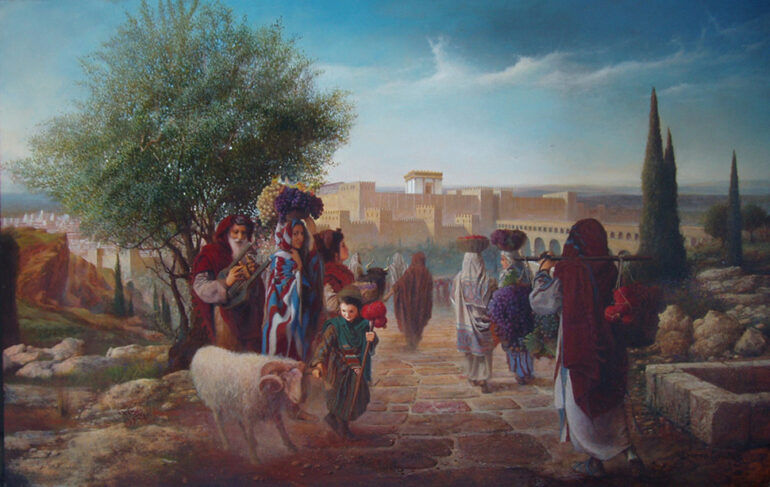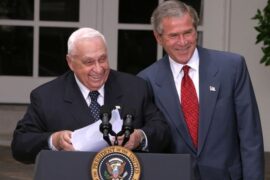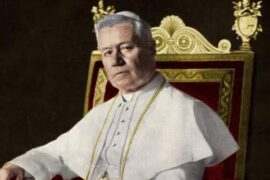Since the re-establishment of Jewish independence in the land of Israel, our state has modeled its political and economic institutions on Western systems. And while we have managed to reach 70 years of statehood with these structures in place, it’s clear that these foreign models can’t work for us long-term.
It is time we explore what our people’s own traditions and values can teach us about what an authentically Hebrew state looks like. So I’ve decided to write a series of short pieces to examine how some of Israel’s values and important traditions can be applied to a 21st century nation-state, specifically in relation to how a Jewish state should relate to property, economic production, and the distribution of wealth.
It’s important to remember that the Hebrew model is not a proscription for other nations – the goal is not to create a uniform system for the entire world to follow. Rather, our mission is to create a unique example in the Land of Israel that will profoundly transform the way that people everywhere relate to the world, themselves, and each other.
This first piece aims to examine the relationship between the individual and property.
The Jewish perspective on property differs greatly from how people relate to it in most of the world today. In Western society, the accumulation of property is often presented as the primary goal and motivating force of human activity. In the United States, for example, people define themselves and others by the property they acquire and by their financial ability to acquire it.
In many respects, the Western outlook treats property as an extension of the individual. When a person donates to a charitable cause, society views the donation as an altruistic act of self-sacrifice. The private donor is praised as someone who gave up a piece of him or herself to help others. This understanding of the relationship between the individual and property, however, limits the human experience to a materialist reality.
The Hebrew outlook, by contrast, seeks to elevate the human experience through the vehicle of the individual’s relationship to property. For example, the tradition of Bikkurim utilizes property to teach the proper and healthy way for people to understand the world, themselves, and each other. Bikkurim is the process by which a Hebrew brings specially demarcated fruit to the Temple in Jerusalem.
In addition to requiring sovereignty over the Land of Israel and the existence of a Temple in Jerusalem, Bikkurim may only be performed by someone who has “absolute” ownership over fruit grown on land of which he has complete possession.
To perform Bikkurim, a qualifying individual must travel to Jerusalem carrying the dedicated fruit in a group comprised of kohanim (priests), assisting Levites (Hebrews from the tribe of Levi) and members of multiple social classes, representing the entire people of Israel.
Upon arriving in Jerusalem, dignitaries and artisans honor the party based on the size of the group entering the city rather than on the identity of the individuals, regardless of their wealth, fame, or position in society. The individual offering the Bikkurim carries the fruit in a basket to the Temple, where both the fruit and the basket are surrendered to a kohen.
Through Bikkurim, we learn to internalize and express a healthier understanding of property.
As Aharon Ariel Lavi explains in About Economy and Sustenance, by limiting Bikkurim to only people who have full ownership over the fruit and the land that produced it, we learn that no one can truly have ownership or dominion over the material world, including the means of production (represented by the land), time (represented by the harvest season), and even the fruits of our labor (represented by the literal fruit offering).
By traveling with a cohort representing the entire nation, the individual learns to identify his property and the fruits of his labor with the entire Hebrew collective.
By paying respect to the arriving party based on the size of the group representing all Israel, rather than by the identity of the individual, we learn to personally identify with the contributions we make to the greater collective rather than our individually accumulated wealth, status, or fame. And by surrendering the fruits of our labor to the Temple, we declare to ourselves and to others that we do not define ourselves by our material wealth but rather according to how we live our lives and what we devote our resources, time, and labor to.
The goal of the Bikkurim offering is to help individuals develop a healthier understanding of property that elevates the way in which we view ourselves and treat others. At its essence, Bikkurim help to free us from limiting our identities to our material possessions, status, or wealth (all finite and temporary) and teaches us to relate to ourselves and to our work based on our impact on others and on the nation at large.
When performed holistically along with our people’s other traditions and rituals, Bikkurim have the power to revolutionize the human experience and elevate us from an individualist to a collectivist mentality.





